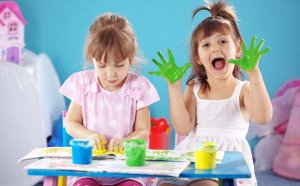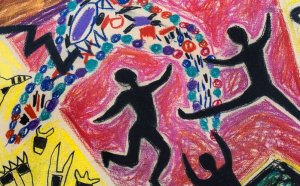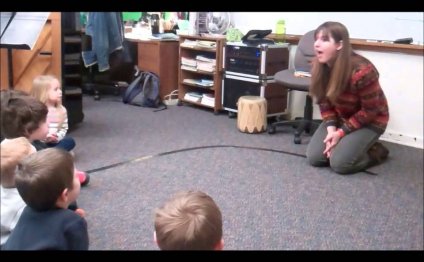
Preschool Music lesson plans activities
The Music Rhapsody preschool program offers your school much more than just a singer with a guitar. Music Rhapsody’s trained teachers will instruct and interact with the children using methodologies which entertain while educating. The concepts taught by Music Rhapsody through fun, engaging activities have a long-term impact on musical and academic learning.
Developed by founder/director Lynn Kleiner, Music Rhapsody’s award-winning music education program is based on Orff Schulwerk, a creative teaching philosophy.
The learning atmosphere is joyful and game-like, full of singing, dancing, and instrument playing, with stories, props, puppets, and imagination!
Each student participates in a minimum of one 30-minute music lesson once a week. Lessons are presented in small class sizes and are attended by the students’ classroom teachers who are encouraged to participate.
To reinforce the concepts and skills the curriculum develops, Music Rhapsody offers resources for the classroom and for students to have at home.
Why Music?
- Music promotes learning!
- Music, at a very young age, dramatically impacts a child’s language development.
- Movement activities and timing games develop motor skills, coordination, body awareness, and spatial concepts.
- Listening, comparing, and responding to various types of music develops thinking skills, while the songs, rhymes, and finger plays strengthen memory.
- Repeating patterns and counting beats develop math and literacy skills.
- Participating in group dances and musical games encourages social skills.
Singing
Children learn a variety of songs: animal songs, seasonal songs, singing games, children’s folk songs, songs for holidays, et cetera. The children become aware of different vocal qualities in the lessons such as high-low, head and chest voice, and singing, talking, and whisper voice.
Many opportunities for solo singing are presented in the lessons. This may be as simple as a singing game where a child responds with a two-note, one-word response. This gives the child an opportunity to hear his or her own voice and the teacher a chance to evaluate and assist.
Pitch-matching for singing in tune is an important goal of the Music Rhapsody program. Children are encouraged to make up their own verses to songs and to make up their own melodies.
Beat/Rhythm
Children practice matching an external beat using a single motion per beat. We often practice playing the beat on xylophones or drums. Rhythm to words is not played on the instruments until the student has mastered the beat.
Instruments
Students orchestrate songs, rhymes, poetry, and stories using various unpitched percussion. The children learn the names and categories of these instruments (woods: tone blocks and rhythm sticks; metals: triangles and finger cymbals; skins: hand drums and tambourines; and shakers: maracas, jingle bells and shaker eggs).
The instruments are used to reinforce the music concepts taught, such as fast and slow, high and low, long and short. They are also used to teach timing and musicianship. Free exploration and creativity is offered. Older students and more experienced classes also use the Orff instruments: xylophones, metallophones, and glockenspiels.
Movement
Creative movement is used with a poem, rhyme, or story. Imagery is used to create situations where the children move “like” something or as if they “were” something, such as a cat, tree, etc. Some beginner folk dances are taught as well as activities to move together to a common beat.
Listening
Experience trains the ear to be more sensitive and hear with a high level of discrimination, making music more enjoyable. A variety of styles and composers are introduced.
Classical music is taught through “active” listening, which includes movement, props (scarves, puppets, stretchy bands and parachutes) and instruments.
Reading Music
Just as children learn to speak before they read, the preschool student experiences and learns to make music before learning to read music. Music reading is not taught in the preschool classes. Some simple visuals are presented in the 4 and 5 year classes which represent beats and sounds on the beat in preparation for music notation.
What The Program Includes
YOU MIGHT ALSO LIKE
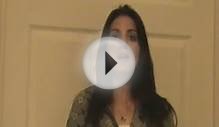
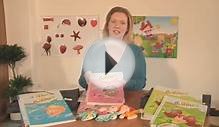
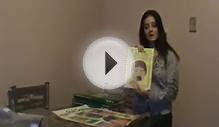
Share this Post
Related posts
Music lesson plans for Kids
Music not only has the power to stimulate the mind, enrich the heart and soothe the soul; it also helps you meet educational…
Read MoreNative American Music lesson plans
Lesson Four- The Strength of Native American Music The following lesson is designed to be used after viewing all or part…
Read More
